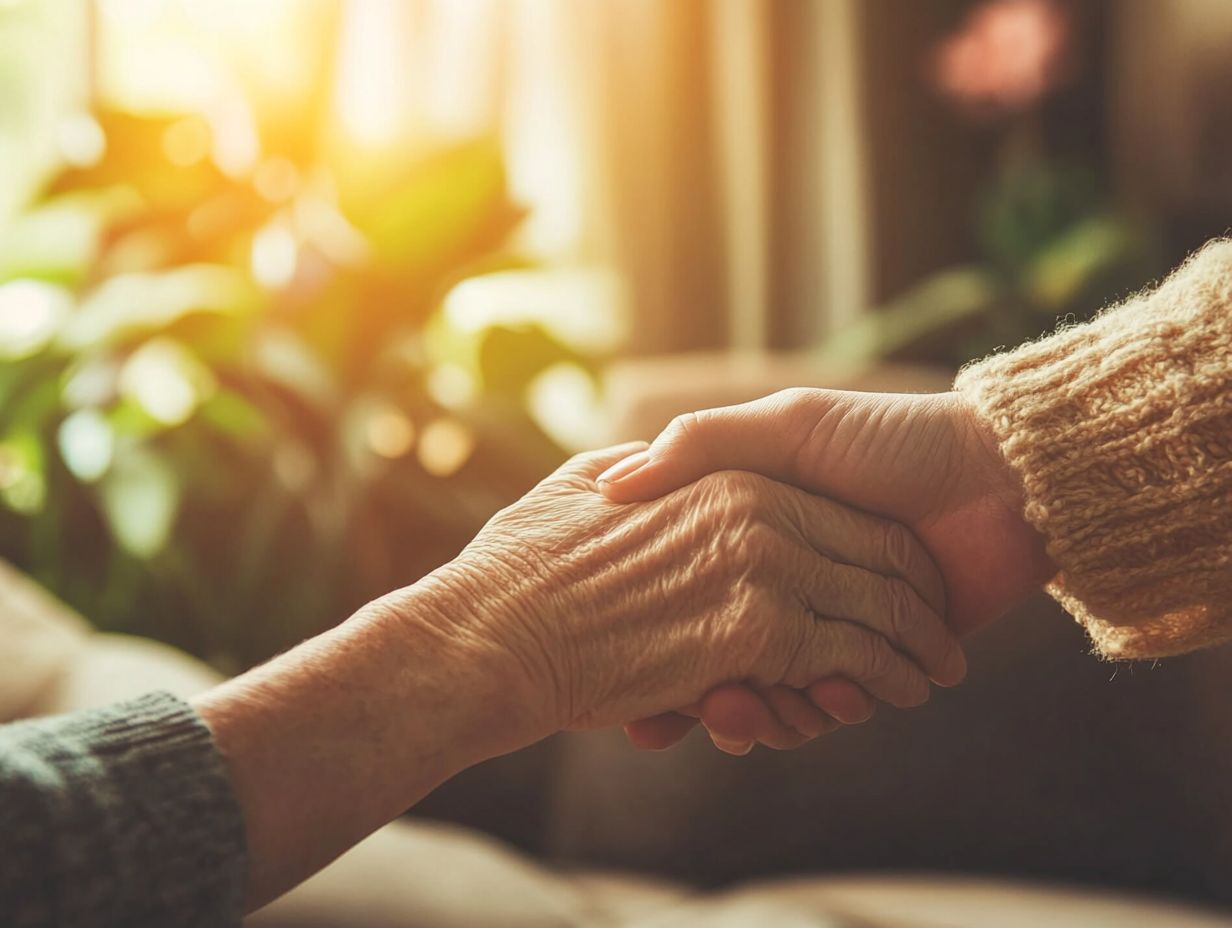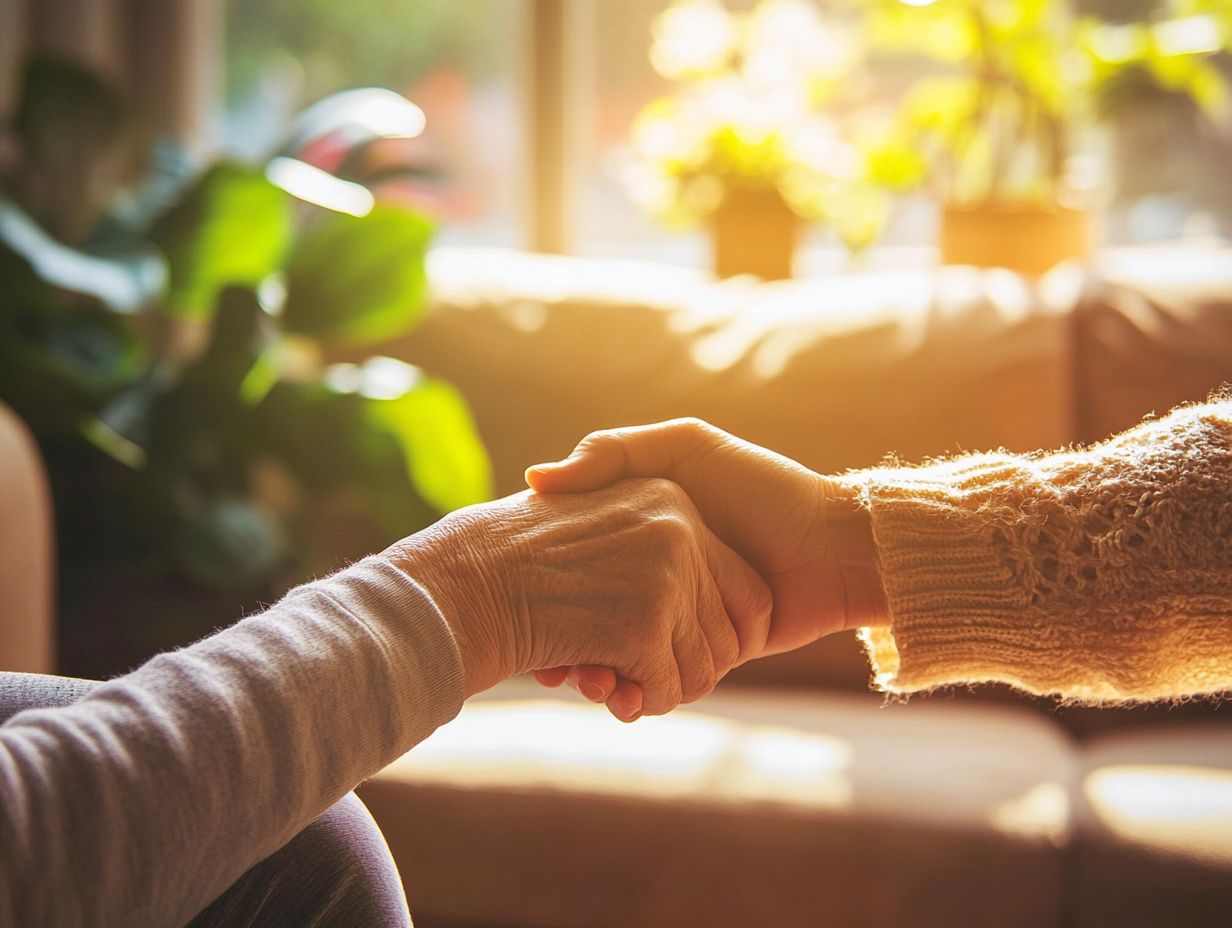The role of caregivers in cancer recovery is vital, encompassing emotional support, daily living activities assistance, and management of follow-up care. Cancer affects both patients and caregivers, requiring them to navigate challenges together. Caregivers play a crucial role in enhancing the quality of care by managing healthcare appointments, coordinating with the health care team, and advocating for patients’ needs.
Support networks and self-care are essential for caregivers to prevent burnout and maintain their well-being. Understanding treatment options and side effects, along with developing strong communication skills with healthcare providers, ensures that patient needs are met throughout the recovery journey.
Caregivers help cancer patients adjust to life post-treatment by addressing both emotional and practical needs, fostering resilience, and promoting relaxation through activities like mindfulness and gentle exercise. Their efforts significantly impact the recovery process, facilitating a smoother transition to a new normal for cancer survivors.
Key Takeaways:
The Impact of Cancer on Patients and Caregivers

Cancer impacts patients through physical symptoms, emotional stress, and financial strain, generating mixed emotions for both patients and caregivers.
Cancer affects caregivers by increasing emotional pressure and altering daily responsibilities.
Both patients and caregivers benefit from support networks to manage stress and improve care quality.
Understanding the Physical and Emotional Toll
The physical and emotional toll of cancer involves symptoms such as fatigue, nausea, and chronic pain, leading to decreased quality of life for patients.
Caregivers experience pressure and stress, impacting their ability to provide support. Coping strategies like routines, social support, and mindfulness improve resilience and emotional health, fostering a positive outlook.
The Role of Caregivers in Cancer Treatment
Caregivers in cancer treatment assist patients by managing healthcare appointments, coordinating care, and providing emotional support, integral to patient-centered care.
Caregivers ensure patient needs are met and communicate with healthcare teams to advocate for the patient, overcoming communication barriers.
The role of caregivers is crucial in improving the quality of care during cancer treatment.
Supporting Patients Through Treatment
Supporting patients through cancer treatment involves managing physical needs and providing emotional support to help cope with treatment challenges.
Support includes listening to patient concerns, involving family support, and encouraging stress-reducing activities like mindfulness or light exercise.
Coping strategies such as journaling, gratitude, or art therapy can aid emotional expression and enhance the treatment experience.
Advocating for Patients’ Needs
Advocating for patients’ needs involves caregivers ensuring patients’ voices are heard and communication barriers are addressed within the healthcare team.
Caregivers convey patients’ concerns and preferences, bridging the gap between patients and healthcare providers, and enhancing intimacy in communication.
Effective advocacy improves care quality and promotes positive health outcomes.
Caregiver Burnout and Self-Care

Caregiver burnout is a state of physical, emotional, and mental exhaustion experienced by caregivers due to the prolonged stress of caring for someone with a serious illness.
Self-care is essential for caregivers to manage burnout, involving practices like seeking support, taking breaks, and maintaining personal health routines.
Recognizing and Coping with Caregiver Burnout
Caregiver burnout is a state of physical, emotional, and mental exhaustion experienced by caregivers.
Recognizing caregiver burnout involves identifying signs like chronic fatigue, irritability, and feelings of hopelessness, which can affect mental health.
- Coping with caregiver burnout includes setting aside time for self-care, seeking therapy, and joining support groups.
Engaging with community resources provides support and enhances resilience, encouraging help-seeking behavior.
The Importance of Self-Care for Caregivers
Self-care for caregivers is crucial for maintaining their well-being and ensuring high-quality care for patients.
Self-care involves prioritizing emotional and physical health through mindfulness, exercise, and social interactions, emphasizing self-compassion.
Caregivers should seek professional help when overwhelmed to sustain their ability to provide effective and compassionate care, ensuring caregiver well-being.
Navigating the Healthcare System as a Caregiver
Navigating the healthcare system as a caregiver involves understanding caregiver duties such as coordinating medical appointments, managing care plans, and advocating for patients.
Caregivers benefit from building a support system, including support groups, to handle emotional and practical challenges effectively.
Proper navigation can improve outcomes for both patients and caregivers.
Understanding Treatment Options and Side Effects
Understanding treatment options and side effects is crucial for effective cancer care.
Treatment options like chemotherapy, radiation, immunotherapy, and targeted therapy each have specific benefits and risks.
Side effects can include fatigue, nausea, and emotional distress.
Caregivers and healthcare teams must collaborate to manage these effects and support patients holistically.
Communicating with Healthcare Providers

Communicating with healthcare providers involves clear and effective dialogues between caregivers and medical professionals to ensure patient needs are met.
Effective communication helps caregivers advocate for loved ones by asking pertinent questions and expressing concerns.
Strategies include preparing questions before appointments and summarizing key points after consultations to enhance understanding.
The Role of Caregivers in Cancer Recovery
Caregivers in cancer recovery support patients by providing emotional support, assisting with daily activities, and managing follow-up care.
Caregivers help cancer patients adapt by coordinating medical appointments, monitoring medication routines, and offering companionship during recovery.
The role of caregivers also includes helping patients regain strength and adjust to lifestyle changes post-treatment, addressing emotional challenges and adjustment periods.
Supporting Physical and Emotional Recovery
Supporting physical and emotional recovery after cancer treatment involves caregivers assisting patients by managing medications, facilitating appointments, and encouraging physical activity like walking.
Caregivers provide emotional support by listening to patients, validating their experiences, and coping with feelings, helping to improve mood and strength.
Caregivers play a crucial role in making recovery more manageable.
Helping Patients Adjust to Life After Treatment
Helping patients adjust to life after treatment involves addressing emotional health and practical needs, managing stress during this adjustment period.
Support after treatment includes managing anxiety about recurrence and adjusting to daily routines.
Caregivers provide physical support like medical follow-ups and dietary management, alongside emotional support through discussions about feelings after treatment.
A support network of family and friends enhances emotional well-being, while activities like mindfulness and gentle exercise promote relaxation and resilience. Caregiver support from community and support groups is invaluable.
Frequently Asked Questions
What is the role of caregivers in cancer recovery?

The role of caregivers in cancer recovery is crucial, as they provide emotional, physical and practical support to cancer patients. They play a significant role in the overall well-being of the patient during and after treatment.
What are some responsibilities of a caregiver in cancer recovery?
A caregiver’s responsibilities include accompanying the patient to medical appointments, managing medication, providing emotional support, assisting with daily activities, and advocating for the patient’s needs.
How can caregivers support cancer patients during treatment?
Caregivers can support cancer patients during treatment by providing transportation to and from appointments, helping with household tasks, and being a source of emotional support and comfort.
What challenges do caregivers face during cancer recovery?
Caregivers may face challenges such as managing their own emotions, balancing their own needs with the needs of the patient, and dealing with financial and logistical issues.
How can caregivers take care of themselves while caring for a cancer patient?
Caregivers can take care of themselves by seeking support from friends and family, taking breaks when needed, and seeking professional help if necessary. It is essential for caregivers to prioritize their own physical and mental well-being.
What resources are available for caregivers in cancer recovery?
There are various resources available for caregivers, such as support groups, counseling services, social workers, and respite care programs. It is essential for caregivers to utilize these resources to take care of themselves and provide the best care for their loved ones.




